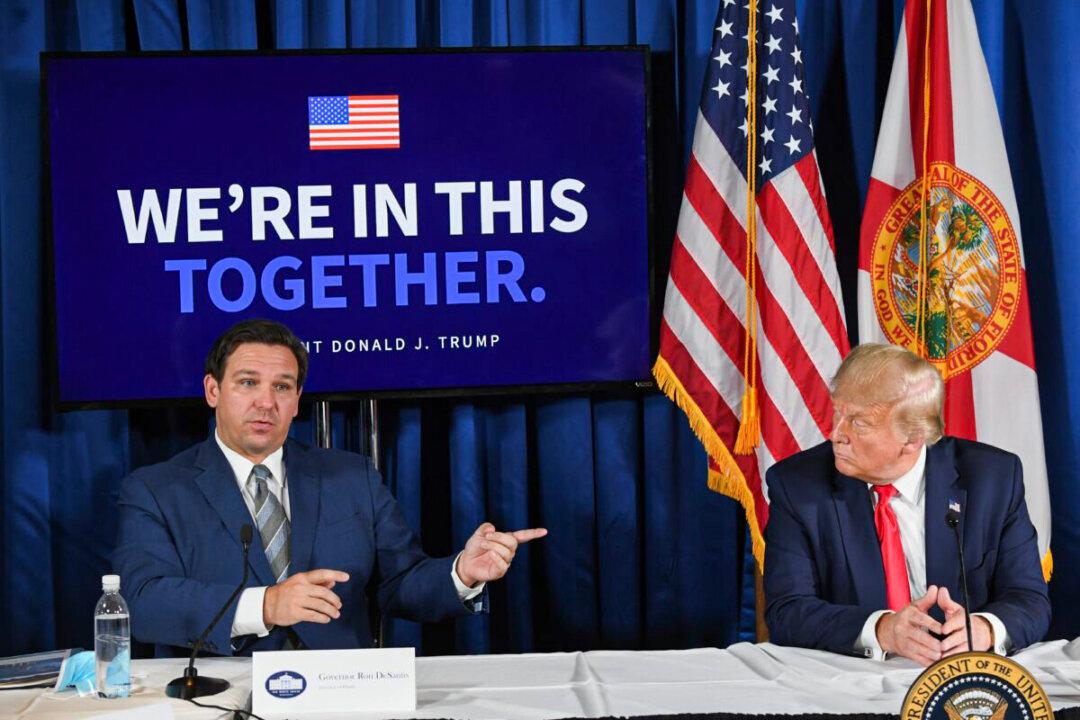In recent weeks, both former President Donald Trump and Florida Gov. Ron DeSantis have touted their own handling of the COVID pandemic while criticizing each other’s response to the crisis.
It’s only natural in the slow run-up to 2024. Everyone wants to be able to say they got COVID right—and hindsight is always 20/20.




